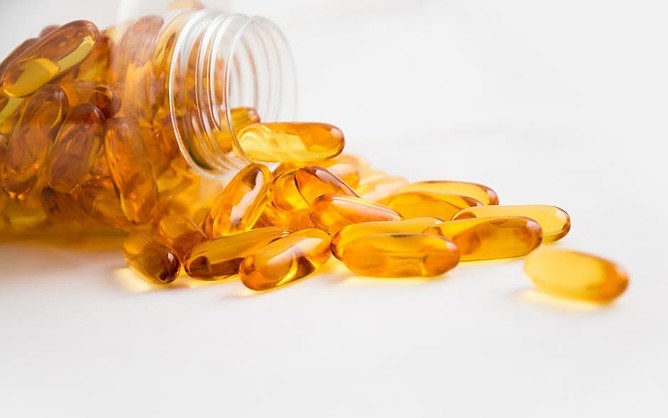Krill oil is known by other names such as Docosahexaenoic Acid (DHA), Eicosapentaenoic Acid (EPA), n-3 Fatty acids, Marine Protein Concentrate, Omega-3 Fatty acids, Omega-3 oil or Polyunsaturated Fatty acids. It also goes by brand names like Neptune Krill oil, Mercola Krill oil, Red Whale Krill Oil etc.
In this article, we will be looking into the properties of krill oil and ‘does krill oil lower blood pressure’.
Before look into the effect of krill oil on hypertension, let’s learn a bit more about krill oil itself.
What is Krill, and Where Can It Be Found?
Krill is actually a crustacean, which looks just like the shrimp and could be mistaken for one. They usually inhabit cold aquatic habitats; mostly the ocean and serve as a delicious source of food for other larger sea animals such as the whales, seals and fish.
The oceans off Canada, Antarctica and Japan are popular sites where you can spot krill. There have been controversies surrounding the harvesting of krill as some claim that harvesting it could affect other species, which have been dependent on it for food such as the larger fishes.
Krill are harvested for use as a source of food for home (human consumption) – krill oil capsules, or for commercial aquariums.
Now, let’s talk more about krill oil.
What is Krill Oil?
Krill, just like fish, contains oil. Coincidentally, this oil is similar to the Omega-3 Fatty Acids as seen in the fishes. Just like the Omega-3 Fatty acids that are said to be effective in reducing the level of triglycerides, Krill oil has also gained popularity for its use in lowering blood lipid levels.
Krill oil is made up of Eicosapentaenoic Acid (EPA) and Docosahexaenoic Acid (DHA). They are both known as omega-3 polyunsaturated fatty acids and also form constituents of oils from some plant sources and fish.
Krill oil vs. Fish oil
The difference between fish oil and krill oil is that the omega-3 polyunsaturated fatty acids found in krill oil are absorbed and transported in the form of phospholipids into the body cells.
I have provided a complete comparison between the two oils below in this article.
Omega-3 fatty acids function to lower the production of low-density lipoproteins (known as bad cholesterol and LDL) and triglycerides while increasing the level of high-density lipoproteins (also known as good cholesterol and HDL). Some researchers have shown that consumption of the omega-3 polyunsaturated fatty acids could lower the risk of developing coronary diseases which might result from an increased level of cholesterol or triglycerides.
Other Components of Krill Oil
Asides the omega-3 polyunsaturated fatty acids – EPA and DHA found in krill, it also contains;
- Astaxanthin – which is a carotenoid antioxidant. They inhibit oxidative reaction by getting rid of free radicals or neutralizing their oxidant effects. They also help to get rid of some toxic substances from body tissues.
- Phospholipid-derived fatty acids (PLFA) – PLFA plays a role in aiding absorption.
Is Krill Oil Effective in Lowering Blood Pressure?
For some time now, the benefits and effects of krill oil to the body have been undergone many clinical trials, and recently much attention has been given to its effect on blood pressure.
High blood pressure is a common health condition, especially in the Western world. However, with the right diet and lifestyle, you can reduce your risk of developing high blood pressure (unless you are genetically predisposed to it).
Studies have shown that omega-3 fatty acids, as contained in krill oil, also reduce the risk of having hypertension.
Tip: Here are the Best Treatments for Hypertension.
How Does Krill Oil Lower the Blood Pressure?
Omega-3 fatty acids have shown to affect blood pressure and coronary diseases positively.
One of the major sources of hypertension and heart diseases is the high level of cholesterol in the blood. When the presence of low-density lipoprotein in the blood is high, it could lead to the deposition and accumulation of fatty plaques in the arterial walls. This causes the narrowing of the blood vessels, and ultimately, blood pressure is increased.
High-density lipoproteins, on the other hand, aids in removing the fatty plaques and helps to flush them out of the blood. Numerous research studies have shown that an increase in omega-3 fatty acid levels, particularly the EPA and DHA, play a significant role in lowering low-density lipoprotein cholesterol while increasing the amount of high-density lipoprotein in the blood.
Krill oil is a good source of the polyunsaturated omega-3 fatty acids – EPA and DHA, as it contains substantial amounts of both and when in high quantity, they have a welcoming effect on blood pressure and cholesterol levels.
This means that when you supplement daily with high-quality krill oil, your body takes in healthier omega-3 fatty acids, your cholesterol levels get balanced and ultimately, your blood pressure will get lowered.
Tip: This is a Complete List of Hypertension Causes. Different causes lead to different Types of Hypertension.
Is Krill Oil Recommended for High Blood Pressure? Does it have side effects?
Krill oil is a supplement that is sourced naturally; hence, it could come with only very few side effects compared to a lab-based chemical (drug).
For someone with high blood pressure, krill oil may not pose a danger. However, it is likely to interfere with certain drugs or medications, so what I recommend is to talk to your doctor before introducing krill oil to your system.
You should know that EPA and DHA fatty acids have blood-thinning potentials; hence, if you are already on a blood pressure medication or other related medications, you should take caution in consuming this supplement. In fact, it has been warned that krill oil could enhance the effects of such tablets.
Other medications that are likely to be affected by this oil supplement include diuretics, beta-blockers, orlistat and anti-inflammatory drugs. It can also affect medications that contain estrogen such as birth control and hormone therapeutic medications.
Therefore, as suggested earlier, it would be best you discuss with your doctor before you start out on a krill oil supplement.
Side effects of krill oil may include
- fever
- back pain
- flu-like symptoms
- fishy burps
- irregular heartbeat
- gastrointestinal upset
- rashes etc.
Tip: In some people, a fever could cause hallucination.
Tip: Poor muscle elasticity, disc bulging, disc protrusion can also lead to back pain. Depending on the location of the back pain, lower back vs. upper back, the cause of the pain is likely to be different.
Talk to your doctor before using krill oil, especially if:
- You have low blood pressure diagnosed by a doctor or take medications that act to lower your blood pressure.
- You take blood thinners or have a bleeding condition
- You are diabetes, have hypoglycemia or take medications to alter your blood sugar levels in one way or the other.
Tip: Did you know Essential Oils can immensely help with diabetes. Here the complete list of Home Remedies for Type 2 Diabetes.
Krill Oil versus Fish Oil: Is There Any Difference?
Both krill oil and fish oil are said to contain two types of Omega-3 acids but are they the same thing? What is the difference? Let’s find out.
When you make a study of the marine food chain, you would understand that krill oil is a more natural source of omega-3. Algae inhabit the bottom of the ocean and are the major originators of omega-3, which is in the form of EPA.
Krill, which is a smaller crustacean feeds on the algae, digests the EPA and then uses it to synthesize another form of omega-3, which is the DHA. Krill, in turn, forms the primary source of food for most marine animals – fish inclusive. Thus, krill provides the fish with DHA and EPA too.
Even though it is likely that krill provides the fish with DHA and EPA, it is said that fish oil has a higher concentration of both omega-3s. The EPA and DHA in krill oil, on the other hand, is said to have more antioxidants.
A research work published in the ‘Nutrition Reviews’ after an analysis of the nutritional values of krill oil and fish oil revealed that the major difference between krill oil and fish oil is that the omega-3 fatty acids found in krill oil are in the form of phospholipids while those found in fish oil are in the form of triglycerides.
The fact that the omega-3s in krill oil are in phospholipid form makes it easy for the body to absorb and make use of them. In fact, phospholipids form basically the building block of almost every cell of the body. In addition to the astaxanthin found in krill oil being a powerful antioxidant, the omega-3s found in them also provide greater bio availability for maintenance of a healthy heart.
Fish oil seems to be more conventional; hence, have been more studied than krill oil. However, krill oil has been making a name for itself (especially as of recent) as an effective and even more superior source of omega-3 fatty acids.
Other Health Benefits of Krill Oil
1. Krill oil promotes cardiovascular health
This is one major benefit of krill oil. Omega-3 fatty acids contribute to cardiovascular health by lowering LDL and triglyceride levels, Increasing HDL levels and fighting inflammations in the blood vessels.
They lower the blood pressure, and some studies have suggested that it has the potential to reduce blood sugar levels and inflammation, thus, showing that it can be beneficial to people with diabetes.
Because they tend to have an anticoagulant effect, they may help prevent atherosclerosis (by inhibiting the blood clot formation, which leads to clogging the arteries) which can, in turn, lead to cases of strokes and heart attacks. This is one reason why krill oil should not be given to patients on blood thinner medications without the due consultation of a doctor.
Tip: It’s worth noting the Difference Between Panic Attack and Heart Attack.
2. Krill is an anti-depressive in action
Some studies have revealed the potentials of EPA and DHA to serve as antidepressants (a chemical can prevent and fight with depression). EPA is said to improve mood by reducing inflammatory reactions in the brain while DHA seems to induce hormonal effects by triggering the release of more corticotrophin-releasing hormone, which enhances one’s mood. The latter is also said to increase serotonin and dopamine levels which both alleviate depression and acts on the mood to improve it.
Tip: Know the difference between Panic Attack Symptoms in Men and Stress Symptoms in Men. And, Panic Attack Symptoms in Women vs. Anxiety Symptoms for Women.
3. Krill is an anti-inflammatory and may prevent arthritis
Some studies have shown that asides preventing inflammation, krill oil can also reduce an existing inflammatory reaction. According to some experts, this is because eicosanoids (which are potent hormones converted from omega-3s in the body) control certain functions which can induce the secretion of anti-inflammatory prostaglandins. These prostaglandins function to reduce the level of c-reactive proteins.
Tip: Here a complete list of Causes for Leg Aches, Knee Pain and Foot Pain with some unconventional remedies.
4. Krill helps relieve Premenstrual Syndrome (PMS) symptoms
Although, the exact mechanism through which krill oil reduces one of the physical symptoms of PMS is not yet understood, at least, some of its effects are believed to be triggered by the anti-inflammatory attributes of the omega-3 fatty acids. Since they have the tendency to act on neurotransmitters and hormones, marine oils such as krill can lower the emotional symptoms of PMS.
Tip: Here are the Symptoms of High Blood Pressure. The symptoms may differ based on the Stage of Hypertension, though.
5. Krill improves neurological development in neonates
Numerous studies have concluded that the intake of adequate amounts of omega-3 during gestation period irrespective of its source does enhance neurological development in kids. Research has also shown that omega-3 fatty acids, especially DHA, are essential nutrients for fetal growth as well as childhood development of organs such as the eyes and the entire central nervous system.
Tip: Not only that, it’s important to be aware of Signs of Diabetes during Pregnancy
and follow recommendations to reduce its risk.
6. Krill can also be beneficial to children with disorders such as autism and Attention deficit hyperactivity disorder (ADHD)
Tip: Did you know that Hyperbaric Oxygen unlikely to be effective for autism, but in the diabetes wound and ulcer healing.
7. Krill may be useful in improving gastrointestinal health
Recent research carried out on animals has shown that omega-3 fatty acids may be helpful in treating H. Pylori as they may be effective in lowering gastric inflammation. More scientific research is still needed in this development, though.
Tip: Here is the Food List for Gastroparesis.
How Can Krill Oil Help You Reap the Benefits of Omega-3 Fatty Acids?
Many people are now aware of the supportive impacts of omega-3 fatty acids and try as much they can to incorporate it into their meal plans.
According to an article published on Fox News, “Millions of Americans consume multiple gel caps of fish oil to supplement their intake of omega-3 fatty acids.” But, it is unfortunate that as much as 90% of the benefits of the fish oil may be lost as the body poorly absorbs it. Thus, it has been discovered that a better way to reap the full benefits of omega-3 fatty acids is by sourcing them from krill oil.
Here are ways krill oil has helped reap the full benefits of omega-3s:
1. It is bio-available
The omega-3s in krill oil are in the form of phospholipids and thus are more effective as the body can absorb them more. This also means you don’t need to take as much dosage of krill oil as you take fish oil to get a required amount of EPA and DHA.
This has been proved by a research published in ‘Pharmacy & Therapeutics’ which revealed that a daily dose of 1-3g of krill oil was more effective in lowering triglycerides and cholesterol levels more than a similar dose of the usual fish oil.
2. Krill does not leave a bad aftertaste
Most people after consuming fish oils complain of a fishy aftertaste, burps as well as digestion reflux. This is hardly the case with krill oils.
In addition, krill oil supplements appear to come in smaller-sized gel capsules (500mg or even 350mg) which makes it easier to swallow them.
3. Krill oil has more degree of purity
Unlike fish oil, krill oil doesn’t have a detectable amount of toxic substances such as mercury.
Being at the bottom of the food chain, krill feeds on phytoplankton and not other marine animals or fishes that must have been accumulating mercury.
Also, krill inhabits the Antarctic, which is the cleanest ocean and originates from there. Thus, it is considered the purest source of omega-3.
4. Krill oil provides more stable benefits
Krill oil contains a strong antioxidant known as astaxanthin which protects cells, organs and tissues by eliminating free radicals.
In conclusion
Even though krill oil has not been studied extensively compared to fish oil, the research studies that have been carried out as of now show that krill oil can be beneficial in lowering blood pressure primarily through its effects on cholesterol levels.
However, krill oil may not be the best solution for everyone. It should not be taken as the first or major line of treatment for high cholesterol. You should also know that for some people, taking krill oil every day, could have a negative impact. There is also the tendency of it increasing bleeding problems in people who take anticoagulants.
If after consulting with your doctor, and it is obvious that krill oil is not safe for you, then you might have to consider other supplements to help reduce your cholesterol and blood pressure levels.
Also, the effects and benefits of krill oil have not been well-studied in humans; thus, more research studies are needed to cover up for the lapses in knowledge in this area.
Tip: Here are the Best Blood Pressure Monitors!
Tip: Have you heard about the RESPeRATE Blood Pressure Lowering Device?





